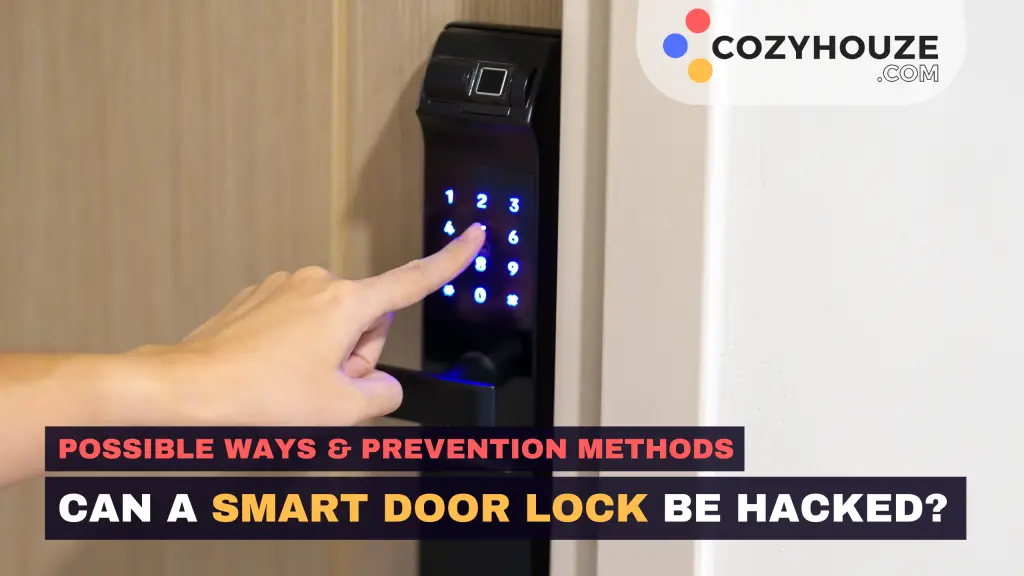In the era of smart technology, our homes are becoming more interconnected than ever before. From thermostats to refrigerators, everything seems to have a smart counterpart. One area that has garnered significant attention is smart locks. These innovative devices promise convenience and enhanced security. However, a pressing question looms over them: Can smart locks be hacked?
The Rise of Smart Locks
Smart locks have stormed the market, offering homeowners a digital alternative to traditional locks. With features like remote access, temporary passcodes, and integration with home automation systems, they bring a futuristic touch to home security.
Understanding Smart Lock Technology
Before delving into the vulnerability aspect, let’s dissect how smart locks operate. These devices utilize a combination of Bluetooth, Wi-Fi, and sometimes RFID technology to communicate with smartphones or other authorized devices. The key question here is: How secure are these communication channels?
Encryption Protocols in Smart Locks
To ensure secure communication, smart locks employ advanced encryption protocols. Brands often boast about military-grade encryption, but how impervious are these protocols to sophisticated hacking attempts?
Hacking Attempts on Smart Locks: Myth or Reality?
The digital realm is not without its dangers, and smart locks are not exempt. The question that echoes in the minds of homeowners is: Can smart locks be hacked?
Common Hacking Techniques
- Bluetooth Sniffing: Hackers may attempt to intercept Bluetooth signals between the smart lock and authorized devices.
- Brute Force Attacks: Relentless attempts to guess the password or PIN can pose a threat.
- Wi-Fi Vulnerabilities: If a smart lock is connected to the internet, it becomes susceptible to Wi-Fi-based attacks.
Real-Life Incidents
Several incidents have been reported where smart locks were compromised. These incidents underscore the importance of scrutinizing the security measures implemented by different brands.
Assessing Smart Lock Vulnerabilities
While the fear of hacking looms, it’s crucial to recognize that not all smart locks are created equal. The level of vulnerability varies, raising another pivotal question: How do you assess the security of a smart lock?
Security Standards and Certifications
Look for smart locks that adhere to industry-standard security certifications. These certifications validate that the device has undergone rigorous testing to ensure its resilience against hacking attempts.
Regular Software Updates
Frequent software updates are not just about adding new features; they often patch security vulnerabilities. Investing in a smart lock with a proactive manufacturer can significantly reduce the risk of hacking.
FAQs About Smart Lock Security
Can smart locks be hacked using a smartphone?
Yes, in theory, if a hacker gains access to your smartphone or its data, they might exploit vulnerabilities. However, this emphasizes the importance of securing your smartphone rather than implicating the smart lock itself.
Are traditional locks safer than smart locks?
Traditional locks have their vulnerabilities, such as lock picking or brute force attacks. Smart locks, when properly chosen and configured, can offer a comparable level of security.
Do smart locks have a fail-safe mechanism?
Many smart locks have backup options, like physical keys, to ensure access even in the event of electronic malfunctions.
Can smart locks be hacked remotely?
Remote hacking is challenging but not impossible. Ensuring a secure internet connection and regularly updating your smart lock’s firmware can mitigate this risk.
Are all smart locks susceptible to the same vulnerabilities?
No, the vulnerability of smart locks varies between models and brands. Thorough research and choosing reputable brands can minimize security risks.
Is the fear of hacking overblown?
While hacking incidents have occurred, the fear should not overshadow the benefits. Responsible usage, regular updates, and choosing reputable brands can provide a secure smart lock experience.
Conclusion
In the dynamic landscape of smart home technology, the security of smart locks remains a crucial consideration. So, can smart locks be hacked? The answer is nuanced and depends on various factors. Responsible usage, thorough research, and staying informed about the latest security trends can go a long way in ensuring the safety of your digital fortress.
In the end, smart locks can indeed enhance the security of your home, provided you choose wisely and stay proactive in safeguarding your digital ecosystem.

